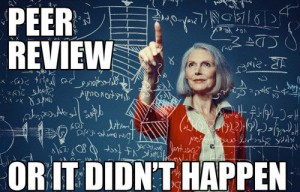Gaming has promise.
In order to fulfil its didactic promise we need to understand exactly what goes on while people are ‘in game’ and how this joyful experience can be used to facilitate positive behaviours – such as functional coping strategies.
In my research I will be investigating the concepts of motivation, control beliefs such as self-efficacy and knowledge processing on a metacognitive level. My hypothesis is that the transfer of in-game behaviour and experiences to ‘real life’ behaviour and experiences can best be facilitated on a metacognitive level (as well) in order to manifest.
 The (un)proving of such an hypothesis, leads to the question of measurement. Currently, there is no decent measurement for transference of in-game behaviour and experiences to ‘real life’ behaviour and experiences which takes into account the interactive nature of a game environment and the more abstract knowledge levels that might be the key to behavioural success.
The (un)proving of such an hypothesis, leads to the question of measurement. Currently, there is no decent measurement for transference of in-game behaviour and experiences to ‘real life’ behaviour and experiences which takes into account the interactive nature of a game environment and the more abstract knowledge levels that might be the key to behavioural success.
This research aims to add to and deepen effect research of gaming.
Concepts
• Transference
• Metacognition
• Coping strategies
Game environments
• Exergames
• Alternate Reality Gaming
• Massively Multiplayer Online
Methodological issues
• Interactive environments
• Mediated modelling
The research is done under the supervision of Prof. Ute Ritterfeld and jun. Prof. Matthias Hastall of the Faculty of Rehabilitation Science at the Technical University of Dortmund. Here you will find the original proposal Gaming to cope – a three year plan written by me and accepted by the TU Dortmund in the fall of 2013.
summer 2015 Two years in and of course, things look different than they did at the start. Deepening of the concept of ‘strategic knowledge’ and discovering ‘meta-cognition’. Finding ‘resilience’ and different types of ‘stress or arousal’ – doing an online priming experiment and adding PROCESS – mediation, moderation and conditional process analysis – to the research toolbox. Please find some of the pieces I wrote along the way here:
Recipe for serious gaming (in health care)
Reality is broken – McGonigal – book review
VR and games as therapeutic tools
A knowledge taxonomy
Barriers to health appeals
So you think you can… Self-efficacy, health and reappraisal
Summer 2016 I ended the PhD without finishing it. Below you can find results from an online experiment I worked on and some other writings:
Does a game prompt make us excited?
Keep your arousal high
Rehabilitation thinking in game design
If you have any questions or possibilities for collaboration, contact me anytime.
